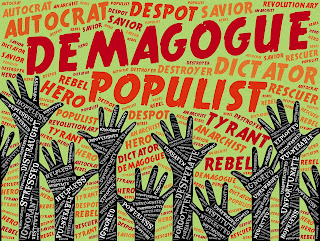In a world of intense turmoil, where everyone and everything seems to be polarized to the extreme, and the earth itself seems completely off-kilter, I find myself reading more and more about the human psyche in hopes of getting an understanding of how we could have ended up in such a state.
Apparently, the splintering of our society can be, in a pretty significant part, attributed to the universal emotion of disgust.
And I'm not talking about the cute emotion Disgust voiced by Mindy Kaling in Pixar's Inside Out (though the movie is great).
 |
| Disgust, voiced by Mindy Kaling source: Time |
"Disgust," as explained in a Nature article on the topic, "is related to bodily purity and integrity, with things that should be on the outside--such as faeces--kept out, and things that should be on the inside--such as blood--kept in."
All very natural. But with humans, disgust can go beyond the primary visceral reaction (aka core emotion') in applying the feeling to more abstract situations, including moral issues. For instance, one can feel disgust at the idea of a person being deliberately cruel to a cute, fluffy kitten, just as one could feel disgust at the idea of someone eating their snot. "People labelled as disgusting in this way evoke fears of contamination just as rotting food does."
Turns out the brain can barely distinguish the difference "between core and moral disgust." Both register close to the same way in MRI scans, with lots of overlaps.So why is disgust then linked to the slow disintegration of our current western society, as mentioned earlier? Because "visceral disgust will sometimes affect ethical judgments." Disgust, you see, can override our higher instincts of empathy and compassion!
The roots of this could be linked to human evolution. Some theories postulate that humans wouldn't have survived, and thrived, if they hadn't been fundamentally kind to each other and cooperative(1). Thus, the article continues, "[i]n making symbolic distinctions between us and them visceral, disgust could potentially foster greater cohesion within groups by bringing people together in defence against a common out-group" (the 'others'). Basically, our disgust of a certain type of individual (say mass murderers) is for the better of the overall society. But it can also be distorted...
"Where core disgust is the guardian of the body, moral disgust acts as the guardian of social body--that's when disgust shows its ugliest side."
This is how propagandists and demagogues have hijacked people's brain throughout history: By causing them to associate a particular group of people with this feeling of utter disgust, until those preached to believe those people are not only 'other,' but also 'enemy.'"Our moral disgust/indignation brain network is the source of prejudice, stereotyping and sometimes outward aggression." It is therefore highly important for us, whenever we feel disgust, to not react automatically based on that feeling, but to deconstruct our feelings of disgust to truly understand where they stem from before we make any sort of moral judgment.
Of course, this is easier said than done. But it is crucial if we want to live in a healthy society, for allowing our disgust to become our moral compass--without appealing to our higher feelings of, say, love and understanding--leads to severe injustice and tyranny.
"History seems to bear this out. Women (especially menstruating ones), the mentally and physically disabled, and inter-racial sex have all been viewed with disgust, and are still viewed as such by some."
But what if instead we "cultivat[ed] cultural and personal values of tolerance and empathy" instead? What would our world look like then? How much greater our progress and prosperity?
Sources and Additional Resources:
(1) In Human kind, a Hopeful History*, author Rutger Bregman discusses this very concept of humans being good by nature and are therefore more prone to cooperation and trust, rather than the traditional Law of the Jungle theory that competition and mistrust are what helped us humans survive to this day.
(2) You can read the full article The Depths of Disgust by Dan Jones published in Nature in 2007 here.
(3) I discovered this article thanks to a very interesting thread by Vince Scafaria on Twitter which discusses the current war on democracy led by a number of people, and how they're using this concept of disgust, along with concepts of the Moral Foundation Theory to do so.
*Disclaimer: Please note that some of the links are affiliate links, and at no additional cost to you, I may earn a commission should you choose to buy the recommended item. If the link is an Amazon link, as an Amazon Associate, I earn from qualifying purchases.







No comments:
Post a Comment
Note: Only a member of this blog may post a comment.